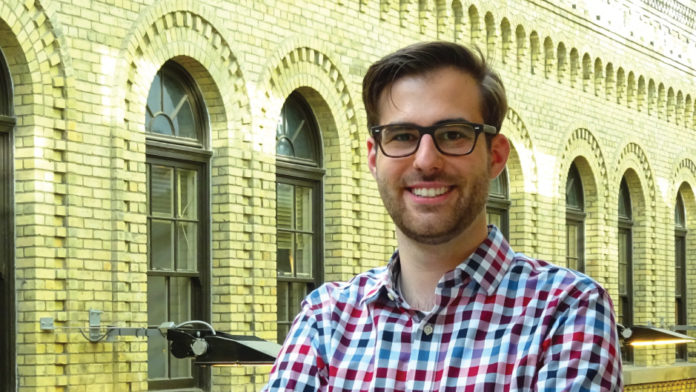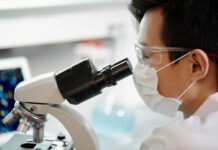Darius Rackus is a PhD candidate at the University of Toronto in Prof. Aaron Wheeler’s lab where he is developing lab-on-a-chip diagnostics for infectious diseases and global health. We asked him everything from what he is reading to what he does for fun in hopes of giving you a better understanding of what goes on outside the lab for a Canadian graduate student.
What do you like most about being a scientist?
I might be idealistic, but I like that as a scientist I have an opportunity to serve others through the work that I do in the lab. I get to do a lot of applied research that may or may not make it out of the lab. Publishing results can also help other scientists come up with better ideas that are more likely to make a real difference.
What advice would you give young researchers?
I’m only at the end of my Ph.D. so I don’t have a lot of wisdom. However, I would say — in the words of Dory from Finding Nemo — “Just keep swimming!” I wish I had known how valuable persistence and determination were at the start of graduate school.
What are you reading right now?
I just started reading Agatha Christie’s Poirot novels and I’m loving them. There’s a similarity between the sleuth’s deduction and the art of science. Her clever use of poisons also entertains me as a chemist.
What do you like to do for fun?
I’m a chemist in the lab and a chemist in the kitchen. I love playing around in the kitchen trying out new recipes or learning how to use science to make old recipes better.
If you could do any profession other than your own what would it be?
BBQ pit master. I picked up the art of slow-smoked barbecue this summer and I love how smoke and time can transform food in the best ways possible. Unfortunately, my appetite can’t keep up with my cooking, so it would be great to cook for others.
Interested in learning more about Darius’ work? Check out his blog post on lab-on-a-chip diagnostics.









































